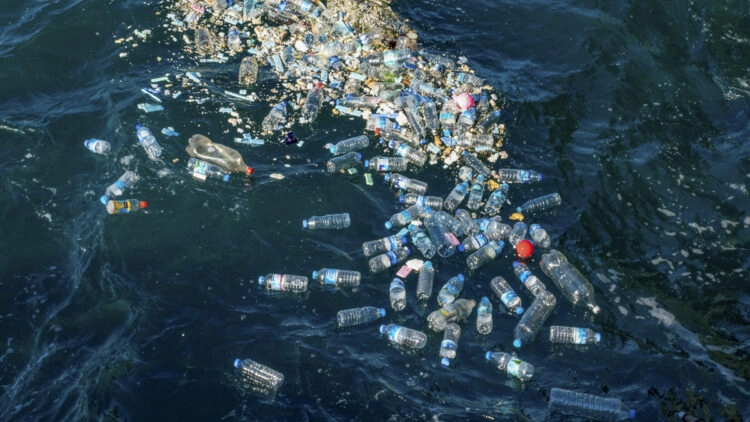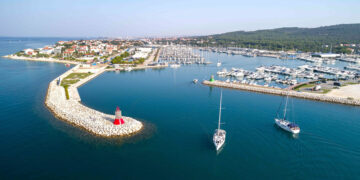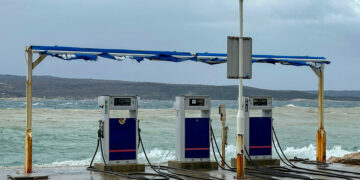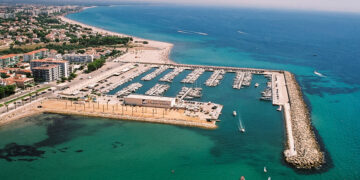A plastic bag blown into the water floats on the waves. At the edge of the tide are sunglasses dulled by seawater, individual shoes and empty plastic bottles. And far out, on the open sea, artificial islands made of plastic waste are floating. The littering of our oceans is frightening and threatens the fragile ecosystem. The crew of the outdoor and water sports magazine BeyondSurfing has evaluated over 171 statistics on the pollution of the world’s oceans by plastic waste. And draws a frightening balance.
The facts, which stand under the evaluation of BeyondSurfing to the global challenge of the pollution of the oceans by plastic waste, speak a clear language. It becomes clear that action must be taken now if we want to preserve the oceans as a fundamental part of our ecosystem worldwide for future generations. This is not just about sparing our favorite anchorages from floating plastic waste, but also about the effects of the many billions of tiny plastic particles on marine life, which in turn end up on our plates in the course of the global food chain. We have clearly compiled the essential facts of the evaluations of more than 170 studies on the topic of plastic waste for SeaHelp readers and show what each individual can contribute to ocean protection.
Plastic waste is the biggest problem
Of all the marine debris studied, plastics, colloquially referred to as plastic, make up the largest group at about 80 percent. Every day, about eight million pieces of plastic enter the ocean. That’s over 12.2 million tons annually! Two-thirds of plastic waste comes from waste generated by cities and towns. The rest enters the ocean through illegal dumping and poorly managed landfills and industries. Currently, there are an estimated 5.25 billion macro- and microplastics floating in the open ocean. This equates to approximately 269,000 tons of plastic waste.
Plastic bags as a global challenge
Worldwide, 160,000 plastic bags are used every second, or five billion a year! Around 10 percent of these end up in our oceans, 300 million in the Atlantic alone – every year! Yet the useful life of a plastic bag is dramatic when measured against the time it takes for it to decompose again in the ocean. On average, a plastic bag is used for just 12 minutes. In the ocean, however, it takes around 20 years for it to decompose. A plastic bottle carelessly thrown into the water even takes 450 years!
Plastic on our plates
This has a massive impact on fish and mammals in the oceans: already one in three fish caught for human consumption contains toxic microplastics. Seafood lovers eat about 11,000 pieces of toxic plastic every year, according to research. Plastic bags are believed to be responsible for the deaths of more than 100,000 marine animals and more than one million seabirds each year. Current projections indicate that there will be more plastic than fish in the ocean by 2050 at the latest, unless we change our plastic consumption patterns.
Litter islands and dead zones
The largest garbage island in the ocean is about 1.6 million square kilometers, almost nineteen times the size of Austria or five times the size of Germany. Pollution with toxins turns the marine environment into so-called dead zones. There are now already 500 such dead zones in our oceans, equivalent to the area of the United Kingdom (245,000 km²). In these areas, the oxygen content decreases to such an extent that aquatic plants die out and marine animals can no longer survive there. In addition, toxic microplastics can be detected in more and more fish.
Fighting plastic waste
In order to fight the pollution of the oceans and actively contribute to environmental and marine protection, each of us is challenged. Already the renunciation of plastic packaging and bags in everyday life makes a valuable contribution. However, it is not only the reduction of plastic waste by each individual consumer that lowers the global volume of waste; the removal of plastic waste from riverbanks and beaches also makes an important contribution to combating the littering of our oceans.
World Cleanup Day
As a central, worldwide day of action, there is International Coastal Cleanup Day, when campaigners around the world clear beaches and coastlines of washed-up or carelessly discarded trash on their own doorsteps. The next Coastal Cleanup Day will take place on September 17, 2022.
In addition, there are many ways to rethink your own consumer behavior and make a valuable contribution to saving the oceans. We asked the crew of BeyondSurfing how they actively participate in the fight against ocean pollution.
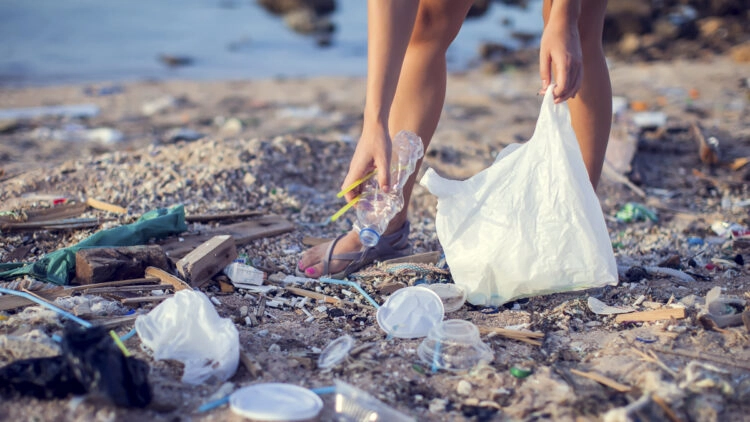
Where are water sports enthusiasts particularly confronted with plastic waste in the water?
Plastic pollution is a global problem. In water sports, plastic pollution is visible in the form of plastic left on beaches or rivers. Particularly hard hit by pollution are canoeists and kayakers who like to tour across rivers. Rivers are the source of 90 percent of the world’s marine litter. Rivers with the most plastic pollution include the Chang Jiang, the Indus and the Huang He.
What can everyone do to avoid plastic waste?
Not to use plastic products such as plastic bags, plastic straws, etc. and – whenever possible – buy products that are not packaged in plastic. Likewise, when buying new products, it is important to make sure that they have been produced as sustainably as possible.
To what extent do you pay attention to sustainability or production that is as environmentally friendly as possible when selecting products that you present and compare at BeyondSurfing?
At BeyondSurfing we try in our product selection always environmentally friendly and sustainable products to include and present. Sustainability is very important to us, so we have also recently joined the initiative of ClimatePartner. This way, we contribute a small amount to CO2 offsetting caused by our website. We’ve described exactly how this works here.
The full analysis of the 170+ studies conducted by outdoor and watersports magazine BeyondSurfing is compiled here.
SeaHelp article dated 07/25/2021
The plastic tide: SeaHelp asks not to be careless with plastic waste


